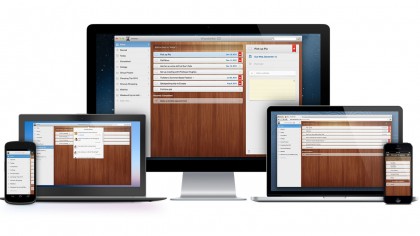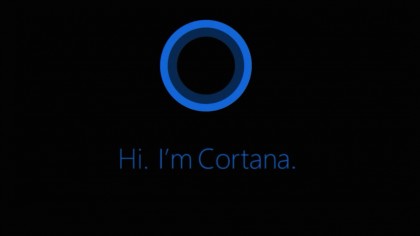Meet the awesome tech that will soon make your smartphone smarter
It's all in the context
Sign up for breaking news, reviews, opinion, top tech deals, and more.
You are now subscribed
Your newsletter sign-up was successful

With Apple's iBeacon technology ramping-up, expect a urge in retail-based apps that enable hardware in shops and stores in shopping centres and malls to send you messages, reminders and discount codes according to your exact location in a store or mall.
iBeacons could also be used at home; Placed automatically opens other apps on your phone as you approach specific devices in your home. For now it's messy and pricey – you'd have to fill your house with iBeacon hardware – but it gives you the right app when you need it. So it could launch a to-do app like Wunderlist or Remember The Milk when you sit down at your desk, open Spotify as you walk out the front door, or fire-up a remote control app when you sit down in front of your TV.

"The remote control of a TV could be used in contextual computing scenarios by identifying the person that is holding it and displaying options suited to that viewer," says Curran, adding that the future of contextual computing probably isn't about apps at all. "As phones get smarter and tablets become popular," he says, "users will have a device where apps disappear and become part of the gadget's intelligence."
Decision-making internet
Curran predicts that the future Internet will be a "persuasive sensing and acting knowledge network … able to make decisions, actuate environmental objects and assist users." Not surprisingly given their concentration on mobile devices, contextual computing is a big focus at the digital big boys. Microsoft's new voice-based personal digital assistant Cortana can silence your phone during your regular quiet times, warn you about traffic on common routes, and even have an electronic boarding pass ready for you when you check your phone at an airport. At present it's a Windows Phone 8.1 technology, but it should spread.

However, even the present generation of personal digital assistant are becoming context-aware.
"Google Now is one of the best," says Taggar of current contextual computing innovations. "Google's goal is very much a focus on showing you your search results before you need them, which is slightly different to Agent," he says. "But Google and Apple are definitely looking at this."
They certainly are. Google's Project Tango, a 5-inch Android smartphone prototype that tracks the device's 3D motion to create a 3D map of the surroundings.
Sign up for breaking news, reviews, opinion, top tech deals, and more.
Meanwhile, Twitter acquired in April the team behind the Cover Lock Screen Android app that lets you customise what apps you see, and when. Expect the Twitter app to become a lot more contextual.
Relax and unwind
Contextual computing isn't just about making decisions – it's also about switching-off. As well as saving us brain-cycles throughout the day by automating repetitive tasks, a contextually aware device won't disturb you when you're sleeping, when you're busy working, or when you're in specific places (say, a museum, the theatre or on holiday).
Could it be a key weapon in helping us quieten our busy, gadget-driven lives? Instead of being slaves to our phones and in a permanent 'always on' state, devices will move from being an erratic distraction to a helpful assistant.
If it's done properly, contextual computing could be about taking the power back.

Jamie is a freelance tech, travel and space journalist based in the UK. He’s been writing regularly for Techradar since it was launched in 2008 and also writes regularly for Forbes, The Telegraph, the South China Morning Post, Sky & Telescope and the Sky At Night magazine as well as other Future titles T3, Digital Camera World, All About Space and Space.com. He also edits two of his own websites, TravGear.com and WhenIsTheNextEclipse.com that reflect his obsession with travel gear and solar eclipse travel. He is the author of A Stargazing Program For Beginners (Springer, 2015),